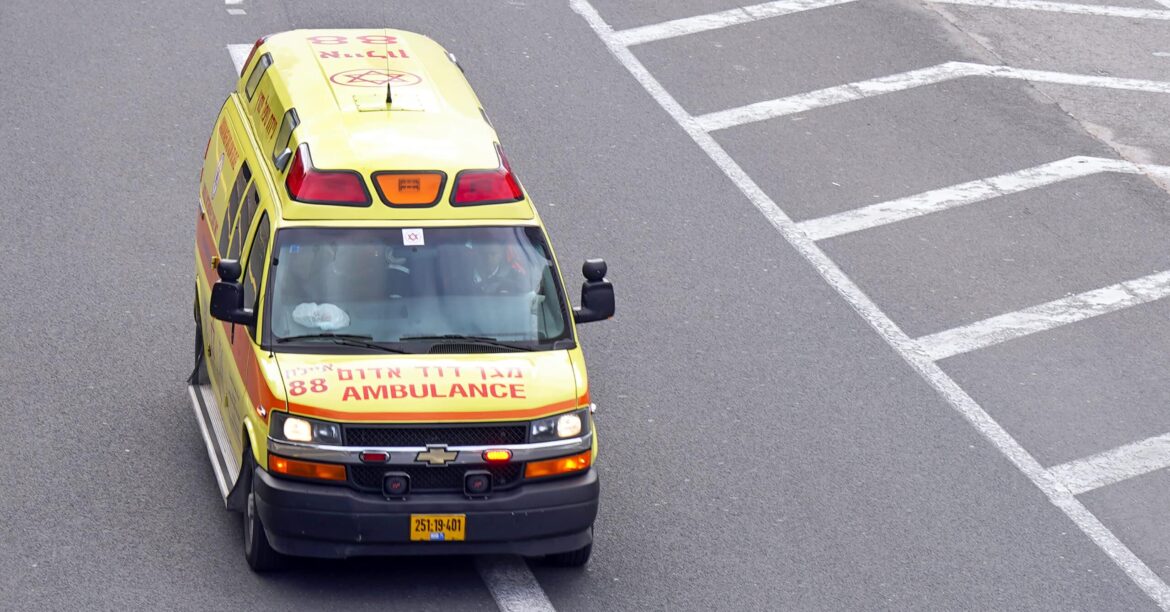One example: IDF advanced life support personnel handled 1,534 urgent casualties with a response time of less than 4 minutes over past year.
On October 7, 2023, Israeli emergency response organization Magen David Adom collected 3,800 units of blood, compared to the usual 900 units per day.
MDA also handled 22,000 emergency calls that day, up from the daily average of 4,800.
From October 27, 2023, to September 8, 2024, some 680 Advanced Life Support (ALS) providers from the Israel Defense Forces handled 1,534 urgent casualties, responding in less than 4 minutes to each situation.
During that time period, the IDF made 1,311 air evacuations, with an extraordinary average of just 64 minutes from injury to arriving at the hospital.
These and other wartime healthcare statistics came to light at the “Pioneering Israeli Medicine” conference recently hosted in New York City by ScienceAbroad, a global network of Israeli scientists, organized in collaboration with the Sheba Research Authority, the Israeli Medical Association and Nefesh B’Nefesh, among other partners.
“This conference highlighted the breakthroughs that are not only saving lives today, but will also shape the future of healthcare on a global scale,” ScienceAbroad Executive Director Nadav Douani said.
“The Israeli medical realm was always at the forefront, but October 7 put our medical abilities to the test. Our first responders showed that Israel is full of heroes, who did everything they can to save lives, while utilizing unique capabilities developed in Israel.”
Uri Shacham, MDA’s chief of staff, shared never-revealed statistics from October 7, while additional data from the ongoing war was presented by Dr. Aviv Gelber, head of the Commanders and Officers Branch at the IDF Military Medical Academy.
They said that the lifesaving efforts and lessons learned from October 7 and the ensuing days have helped Israeli medical professionals prepare for the current escalation with Hezbollah in northern Israel.
The speakers discussed:
- Cutting-edge technologies and practices
- Israeli medicine 2.0: the day after
- Hospitals as innovation centers
- Rehabilitation for physical and mental recovery
- Emergency medicine: new insights and innovations
- Strengthening the Israeli healthcare system
The rehabilitation system in Israel has faced unprecedented challenges since the war began, said neurologist Dr. Zeev Feldman, vice-chair of the Israeli Medical Association and moderator of a conference panel titled “War Wounds: The Journey of Rehabilitation and Recovery.”
“In just one month, hospitals like Sheba had to double their capacity to accommodate the overwhelming number of injured patients,” Feldman said.
In the first month following the attack, Sheba treated 62 Supernova music festival survivors with acute stress trauma to prevent PTSD. The professionals had to adapt their protocol to this traumatic event. One doctor had a patient who’d lost almost 100 friends, and during the first month of the war, bounced between therapy and funerals.
Feldman said the panelists’ discussion “covered not only the physical wounds but also the emotional scars, and how our healthcare system is working to help these individuals reclaim their lives, bringing them as close as possible to who they were before their injuries. It’s a journey of both medical care and emotional resilience.”
Dr. Rivka Carmi, chair of ScienceAbroad’s executive board and former president of Ben-Gurion University, added that the response to new challenges facing Israeli medical professionals is directly applicable to their peers in the diaspora.
“Amid rising antisemitism and pressures from working in war-torn areas, our doctors continue to drive forward critical innovations. Their resilience is not only reshaping wartime healthcare but will also influence global medical practices.”
Originally posted at israel21c.org

